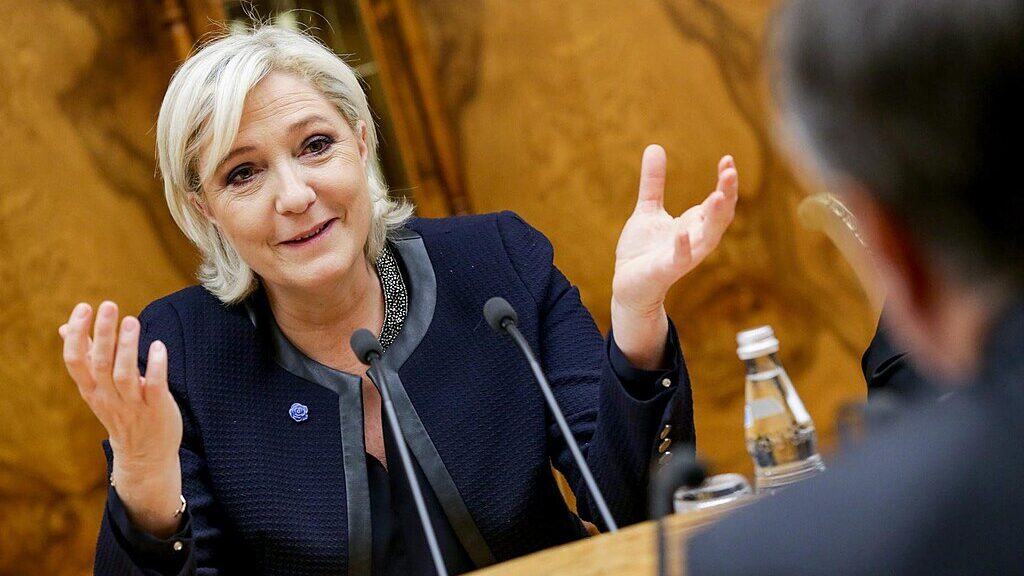
Marine Le Pen
Photo: Duma.gov.ru, CC BY 4.0, via Wikimedia Commons
Confirming rumours that have been circulating for several days, the French president Emmanuel Macron just announced that he was keen to debate Marine Le Pen—as soon as possible.The conditions for a debate have not yet been met, according to Marine Le Pen, the former president of the Rassemblement National and now leader of her party’s parliamentary group.
Many French voters see this proposal as a crude political manoeuvre to salvage an election that looks set to end unfavourably for the president’s party.
On the flight back to Paris from New Caledonia, Emmanuel Macron explained to Le Parisien newspaper that he “was ready to debate now with Ms. Le Pen.” The proposal has been floated for several days but not yet been confirmed by the Élysée Palace. Marine Le Pen explained at the time that she was willing to face the President in a debate, but on condition that the confrontation took place after the European elections.
At issue: the risk she could pose to her party in a lost debate—as already happened in 2017 and 2022—even though the Rassemblement National is expected to be the big winner in the European elections on June 9th.
It is precisely because he knows that such a discussion could be to his advantage that Macron is considering it today—at a time when his party’s list, headed by a certain Valérie Hayer who is totally devoid of charisma—could potentially fail to secure a third-place share of the national vote.
Without a formal invitation in hand, Marine Le Pen was highly critical of the president’s proposal. A few hours after Macron’s announcement, Le Pen responded sharply, again in Le Parisien: “I haven’t received the first hint of a proposal. It’s cavalier of him not to have someone contact my office. I’m not his employee. I don’t come when they whistle at me,” she commented.
Le Pen’s position as follows: she is prepared to debate with the president, but on condition that he undertakes to resign or dissolve the national assembly in the event of a—more than likely—defeat for his side. Logical and coherent, she accuses the president of wanting to change the outcome of the election by confronting her directly, even though she is not personally running in the European elections.
The same mechanism was at work in the televised debate that saw Jordan Bardella, head of the RN list, face off against Prime Minister Gabriel Attal on Thursday, May 23rd. If President Macron, by proposing this new debate, opens himself up for criticism from his opponent, he should have to draw practical conclusions in the event of an electoral disavowal.
The Élysée Palace obviously rejected Marine Le Pen’s conditions for holding the debate, yet without giving up: “If we think that this is an election in which part of France’s destiny is at stake, which I believe it is, we need to debate. I’m at her disposal. The ball is in her court,” added Macron, emphasising that the challenge was valid for the next fortnight. “After the election, this debate will no longer be of any interest: I am president of the republic,” he added, thus highlighting the manoeuvring nature of his proposal, which is simply intended to revive a campaign that has run out of steam.
The situation is made all the more tense by the fact that the debate between Bardella and Attal was supposed to win votes for the prime minister’s party, but did not have the desired effect. Bardella’s performance was widely criticised, but a majority of French people nevertheless found him more convincing than his opponent.
